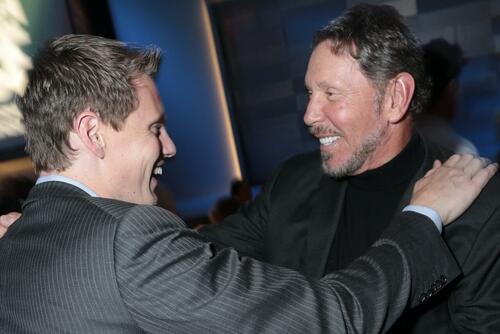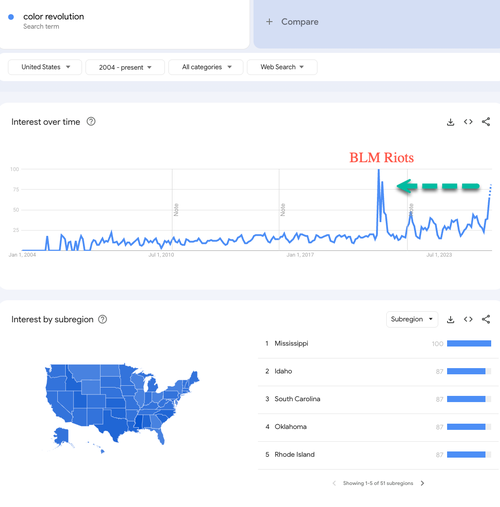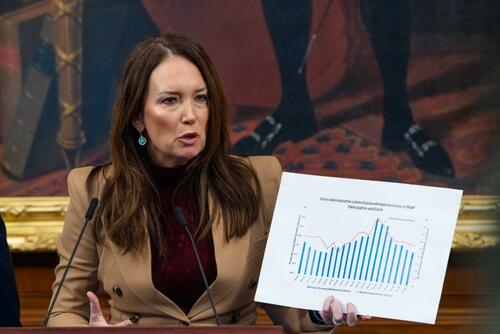Your Utility Company is Spying on You | Cal Washington, InPower
‘Smart meters’, which were installed on your house without your consent, are gathering data and building a detailed profile on you. A profile which your utility company sells to other companies, and maybe even to the government. But there is…
Will Dove 00:07 You know, the government and corporations are tracking your phone and your online activities. But the surveillance state has moved far beyond that. Cal Washington is the founder of www.inpowermovement.com, an organization which is working to provide people with practical and effective means to protect themselves from the surveillance that many people don't even know what's happening, the tracking of your activities in your own home with smart utility meters. Cal, pleasure to have you on the show. Cal Washington 00:37 I'm happy to be here well. Will Dove 00:39 So I know that your expertise really is in protecting people in the notices of liability that you've created. And they're very, very cleverly done. And I want to get into that a bit. But first, many of our viewers and even myself was not aware of the level of surveillance that's happening from the smart utility meters. I mean, the utility companies come along, they sell us a song and dance about it, that it's going to be fair billing. But that's not what they're for. They're to monitor what you're doing, and to build a profile on you. So could you speak about that, please? Cal Washington 01:08 Yeah, they're not. Their claim is that they can monitor your billing so that you can reduce your utility bill, the amount you pay, but we've seen all throughout North America that your bills go up. So that, you know, it's just a complete fabrication. So there is something else going on with them, they are definitely able to track any smart device that's in your house will go through the Smart Meter. So the Smart Meter is a collector of data. If you look at it that way. That's really what it is. Your utility usage is one aspect of data, that's the thing. So it is monitoring that but it's monitoring many other things as well, because it's just a relay for data that's connected to other smart meters and then into a large network. That data is it like the meter doesn't understand data, you know, it's just ones and zeros to it. So the data that it can collect has value for certain people, for certain reasons. So say law enforcement, they could tell if somebody was home, they could tell who was home, they could tell if other people are in the house. There's a bunch of things they can tell from that. For commerce, they can tell when, if there's something hooked up to your fridge, and even a device like RFID chip on any item, they would know that that thing has expired or run out - all that, oh, there's a lot of information that can travel through that smart meter. Will Dove 02:47 So folks, what we're going to do right now is I'm going to play for you a short ad that appeared online, from a company in Great Britain called ONZO. And they're a software company and they write the software for the smart meters. And they did this ad by the way, what I've heard about it is that it was put up on the company website and it was pulled because it was basically admitting to surveillance, it's quite short. replay it now. I'm gonna come back as soon as you've watched that, I got some more questions for Cal. Smart Meter Ad 03:19 We way around though. We help Energy Utilities globally to build better relationships with their customers, serve them more efficiently and sell them in a more effective way. How do we do this, we take energy consumption data from smart meters and sensors. We analyze it using our patented algorithms and builds a highly personalized profile for each and every utility customer. We then tagged his profile with the key behavioral attitudinal and lifestyle characteristics that we identify. We even tagged the appliances that we see being used in the home, we then use this car drives profile to give utility three things. One, customer engagement apps that educate the end customer build levels of trust, and ultimately reduce customer churn to a detailed description of each end customer that helps the utility to provide more appropriate services and highly targeted sales campaigns. Three, the ability to monetize their customer data by providing a direct link to appropriate third party organizations based on the customer's identified character. So from a very thin stream of energy consumption data on zone deliver significant business value curve little as the price of a cup of coffee Will Dove 04:38 So Cal, there's two things that just immediately hit me when I watched this one. And the first one was they're talking about building a detailed profile on you for obviously, for the purposes of selling you things you know, for example, I came up with this simple example myself. Let's say that they're monitoring you and your home is largely not using power or water from, say 4pm to midnight, but right about 1230, the lights come on, then you're starting drawing power for cooking a meal perhaps. And then the shower runs. And they can tell all of this stuff by how long something runs for, how much power is being drawn. And so they have algorithms to calculate what you're using. Of course, as Callum mentioned, they've also got smart devices that are communicating yet more data back through these meters. So you could have a smart fridge or whatever that's actually telling them when you opened the fridge, and how long it was open for. So then let's say that power consumption pattern runs until I don't know about 4am. And then it cuts off again. And then it picks up again, around about, oh, two o'clock in the afternoon. Well, from that, they can probably conclude you're a shift worker. And now they can start targeting you with ads for things that would appeal to shift workers. But it's much more insidious than that, because the second thing that struck me is, they're going to sell this data to other organizations to other companies. And I think we can be pretty sure that the government Cal Washington 06:11 is absolutely true. It's no doubt about it, it's the new oil, there's they're saying this data, it's the new gold, this new gold rush, it's the new thing to be on. For the new economy, it's all going to be based on data. And data is whoever controls the data is really controlling everything. And the data has extreme value. So those that are collecting it have are building up a huge bank account because they can sell this data. And they've used things like tacit agreement, because there are rules, especially in Europe, with the GDPR. Which you have to get consent for the data. But there's a thing called tacit consent. And that's how they're getting away with stuff. If you didn't say no, then you said yes. And so if you're ignorant of what's happening, then you probably have agreed to something. And that's the, the part that we need to wake up to and actually get involved. Once you see that you know, a video like this one that you just played, you have to, you know, start to be aware of what's going on, and then take control of your at least your bubble, your life, your environment, Will Dove 07:28 Right. And so you've got a very practical and effective way for people to do that. You have created a very unique notice of liability customizable to the user. And so please, and you've had some successes with this as well. But let's start out with the details of the notice of liability itself. Because of course, yes, we just talked about tacit agreement, but they're violating our privacy. You know, we there's a lot of people out there who as soon as they watch this interview, they say, wait a minute, what do you mean, they're monitoring what I'm doing in my own home? Yes, but that can't be illegal. And if it is legal, it sure isn't right. It's not something we want them doing. Cal Washington 08:07 Yeah, there's a difference between right and wrong, like morally right and wrong and legal. Like there's lawful as well, because there's laws and then there's statutes, and there's a whole legal world. And that world is the word like try and keep us in and you can make things legal. You know, I was just on a meeting before and there was a time when piracy was legal. You were you got a license to be a pirate, in other words, to steal stuff off of boats. And you recall a privateer that was legal. slavery was legal in the United States for you know, hundreds of years. You know, that and then it became illegal. But it was legal. Does it make it right? No, or morally right? Or even lawfully right? No, but it was legal. So tacit agreement is a thing that comes from merchant law, and your smart meter is based on a contract. So it's, it's a commercial, in essence. And so it's just a gadget, but they get your agreement, because you didn't say no, it's called tacit agreement. And it sounds wrong, like I said, but it is, it is an actual thing that they rely on. And so there are some statutes, especially in Europe, where you can remove your consent. And it's very clearly stated, all these laws are very clear. English, not legalese. It's like, very plain. So but if you don't remove it, it's you've agreed to, to being surveilled. And that's, that's the bottom line. Will Dove 09:51 So what about here in Canada? Cal Washington 09:54 It's the same thing here. It's the same thing everywhere. So your agreement, the agreement in law merchant which is a jurisdiction is it can be taken tacitly because your actions and your inactions. So you have to be you have to be engaged in commerce, you have to engage in any kind of contract offer coming towards you, you if you ignore it, you run the risk of tacitly agreeing to it. Will Dove 10:23 Right, what I'm getting at is you've made reference to the GDPR in Europe, and that they have a very plain English means there of opting out if they want to, aside from this notice of liability that you created. Is there any method for people to do that here? Cal Washington 10:37 Yes, because of the GDPR, and the worldwide transfer of data, you have to be compliant. So there are going to be certain companies who have to be compliant with GDPR. Because GDPR is the strongest governing body of laws or codes or whatever. So each country has its own privacy rights or privacy laws. The GDPR is quite stringent. So if you want to do any kind of dealings with Europe, and transferring any data to Europe, you have to be compliant. So pretty much, even though we don't have it written that way, here, you have to kind of be compliant with them and look for certain companies for sure if they have any dealings in Europe. So it'll be there'll be some gray area here in Canada, where, you know, if you removed it, it moved your consent expressly? Whether they would listen to you or not. So some would, there's going to be some instances where they're going to have to, Will Dove 11:44 Right, so but for the ones that won't you have this notice of liability that people can access fill in on your website, and serve to the utility company. So can you please explain how that NOL works? Cal Washington 11:57 Well, the meters, there's more going on with meters than just surveillance, they're actually they're emitting microwave fields. So EMF fields, because they're wireless. And so there's health issues as well. And people are, there's some people who are very sensitive to these things are having all kinds of health problems. nosebleeds, dizziness, can't sleep at night, ringing in the ears, there's all kinds of things happening on so there's other aspects of these meters that are that go beyond privacy. So we have taken because it's commercial, and it's dealing with the meters there, because of the suppose - its primary function is to monitor your electricity usage, or your water usage or your gas use, just because they have meters for all three utilities now. So that's just primary function. And that's, that's how they that's how they get the easements etc, to come to your home and put this device in there. But it has a lot more going on. So we take that as a contract offer that they're trying to change the meter. And we say, because it's a contract offer, we can counter the contract offer in commerce. So that's the premise of it. So what we're saying is we will take your meter, we will accept your meter on the condition that you prove that it's safe, and prove that it's not stealing my data, and all these things that it's doing. So we have a list of them. And if you can't prove that that's not happening, then and you continue to put the meter in my vicinity that I'm going to charge you X amount of dollars per day, do we have a deal? So that's the premise of it. So it's really renegotiating the contract, because they made the first move and made the offer put the offer out there. Will Dove 13:57 Now let's - some of you viewers think that that sounds like kind of a wishy way of going about it. I actually know a fair bit about contract law myself. I was a realtor for a long time. So I had to learn about contract law. And so what Cal has just described is absolutely accurate. They made a proposal to you, you can counter that proposal. And the terms of the contract have to be agreed upon by both parties. And it has to be signed by both parties before it's binding. So I think what this gets back to Cal, if I'm reading this right where you were talking about tacit agreement, but if they come to you wanting to put in the smart meter, and you counter their offer with well, okay, I'll take it under these terms and only under these terms, and if you don't accept these terms, that I get to charge you X amount per day. Cal Washington 14:43 Yes. And if you go silent, like you were just doing to me, then you've agreed to this to these terms. Will Dove 14:49 Right. So you're basically you're taking their very own contract law, and you're turning around and you're using it against them. So at this point in time, what kind of coverage do we have in Canada for the smart meters themselves? Do you know? Cal Washington 15:03 We're way ahead. Like, Europe's just kind of coming on now. So, like here, we're probably 100% saturation at this point in British Columbia. Alberta, I think you're just kind of getting on, Saskatchewan definitely has been out for years. Okay, so each province is different. Will Dove 15:21 But so here's the question I know is occurring to the viewers, if they've already installed it, can you still use this NOL? Cal Washington 15:29 Yes. Will Dove 15:30 Okay, so you're not screwed. Even if they installed say two years ago, you can still turn around and use this NOL to counter that contract. Cal Washington 15:40 That's right. Because it came into knowledge of the contract, you're still in the meeting of the minds part of the contract, because it's not been expressly you didn't sign for this. They they're relying on tacit agreement. So it's still open ended. You're just now coming in the knowledge of your I think you've been scanning me here, mister. And now I'm countering it. And if the meter is already on, one of my terms is we move the meter. Will Dove 16:06 Understood. Now you've had some successes with this, especially as to politicians turning tail and running, or when they've been served with these things, I believe. Would you please describe some of those successes? Cal Washington 16:20 Well, most of the successes I had were doing the same process in my own court cases. And so I had I was in a divorce case, and then ended in a driving without insurance case. So I drove with a I drove without insurance, because, you know, because of what I went through, I ended up learning way more than I probably should have, and realized that the whole insurance thing was a big scam. And therefore, I could read the Acts and I and I did the appropriate procedures according to the Act, which they changed after the fact. But anyway, at the time, I was able to put up a an instrument commercial instrument with the finance minister of British Columbia in order to cover my insurance. And it was clearly in the Act in the Motor Vehicle Act. And they wouldn't do it. So you know, I kept doing what I was doing, and they kept doing what they were doing. And, you know, it was lots of pullovers on the side of the road, lots of arrests, lots of you know, in and out and court and all that. So it was all through that that I saw a lot of people stepped down with the smart meters, we did see the mayor of Seattle stepped down. Not I think there was nine city councilors, three stepped down right away. Seven, were not going to seek re election, the mayor, the new mayor came in. And of course, according to contract law, as you understand, it goes to the successor of the position and so he came in as Mayor. A month later, he stepped down. In Detroit, we had the city lawyer step down. We had the Governor and Attorney General of Michigan, turn their view on smart meters and send it back to the commission to relook at things. This is after they dodged the mail. And we had to send a process server to actually get them to, then all of a sudden they you know, they got the mail, and then they came out right away. So we saw a lot of that kind of action, a lot of those kinds of behaviors. Will Dove 18:23 So may I assume that the reason why they're stepping down is that they don't want to find themselves put on a stand having to answer some very uncomfortable questions under oath about A) did you know that they're using this software to collect data on the people who elected you and B) did you know that these devices are potentially very unhealthy? Cal Washington 18:42 That's correct. And that's all spelled out in the notice in an affidavit form, so that if you can rebut all these points in the affidavit, then we're good to go. So in other words, prove these things are safe. They can't do it because they are literally weapons, and weapons are not designed to be safe. So, you know they're not and that's their problem. So they're stuck with their own stuff. And then when they realize you know, that their personal holdings, may in jeopardy, they start to the rats leave the ship. Will Dove 19:13 Okay, so for our viewers who have been watching this and realized now that there's something they can do about this, they go to impowermovement.com What do they do once they're there to fill in this NOL and then serve it? Cal Washington 19:27 Well, you have to become a member. So there is a membership fee and it's not - it's very low, it's like $15 a month. And then you get four respondents. We generally tell get two from government and two from industry because it's all commercial. But there's always a government oversight for all of these things. So the government is definitely involved in every country. So we tell you to get four respondents you --vet them for you, just to make sure that you're not overstepping and sending to the wrong person. We want to keep everybody safe. And then so we will, we will approve the respondent, it goes into a database. And then when you're ready to print, you just put in the respondent number and it prints right into your document for you, your daily fee schedule, if they, you know, keep the meter on or keep 5G going or the force vaccination thing, your daily fee will be calculated, when you get to the billing stage, it will all be calculated for you. And all the bills and everything that has to go with it are sent to you by email. Will Dove 20:32 So I think the last question that is going to occur to the viewers is okay, so they go through this process, and they turn the tables on the utility companies put them in a position of having to respond to this, they don't respond, which as you're explained, is tacit agreement. At what point in time do they start going to send bills to the utility company, Cal Washington 20:50 You could send that right away, because you know the way a contract works, but we get you to ratify the contract first. So you send the first notice, which is a fairly large document about 20 pages long when they don't reply, then you send them a Notice to Cure, a Notice of Fault, and an Opportunity to Care. So it's a three step process. So you give them another 14 days to respond or reply. And if they don't, then you send them a Notice of Default. Now you have a complete -- even though it's tacit, but there's an agreement there. From there, you start billing. So after your first 30 days, you know, times your daily fee, whatever you've chosen, they will be sent a bill with that amount on there to those respondents. Will Dove 21:37 Right, and this is just exactly the reverse side of the coin of what they did to you. There's a tacit agreement, and they're sending you a bill. Yeah, but you never agreed to the details of this. Cal Washington 21:46 No. That's right. Will Dove 21:48 So the last question that I think that we have is, we know they're not going to pay it now. So what do you do at that point, you've sent the bills, they're not paying them, they can come after you, they can send a bill collector after you if you don't pay. What do you do when they don't pay? Cal Washington 22:05 You could send a bill collector after them. There are processes using the you know, the court system and the commercial system for like registering liens, etc. We're telling people not to do that not to go into the public to stay on the private, more on the private side of things. But that is still available as a tactic like we could do it. You know, if we had a mass amount of people do it, and we all did it on one day that's going to that's going to affect the system. So those things are still available. And we you know the document is designed to be able to legally go in there. But we were telling people to stay out. But the bill itself is called a bill of exchange. And there's this funny act in Canada called the Bills of Exchange Act. Lawyers don't know about it by and large, they don't know about law merchant. That's not taught at law school. And yet, it's in our acts. So you'll see bills of exchange, and you'll see law merchant. And even in the Bills of Exchange Act, Section 9, it will mention common law and law merchant are still overseeing this aspect of law, regarding bills. So and then the Financial Administration Act in the definition section, under the definition of money. negotiable instruments are money. And then the very next definition is negotiable instruments. bills of exchange are negotiable instruments. Therefore, bills of exchange are money. In our system, we just don't know that but it's there, right in our Acts, if you want to look at it. So the bills that you're creating on these people, the piece of paper itself, and we tell people to keep the originals, send copies is money in their system. So according to their system, this is the money we just have to be able to redistribute it. And there and in recent times, there are ways of having currency out there that weren't available, say 20 years ago. Will Dove 24:12 So there are ways to convert those bills of exchange into actual money that you can spend. Cal Washington 24:19 Yes. Will Dove 24:20 And I'm right now I don't want to I'm not going to ask you for that information. You're giving away things and you have to support your efforts. And that's why I understand the need for the $15 month fee. But I'm going to assume that if people sign up, that gets explained to them of how they can do that. Cal Washington 24:33 Well, we're going to do it for them. That's, you know, -- what we need what we really need here, you know, if you boil all that all everything that's going on in the world, is we need a new system, the system is corrupt, top to bottom cannot be fixed. You cannot vote it to change it like that. If you still think vote voting is going to work. You know you and they're obviously showing you that it's corrupt -- showing you and you still participate, and that goes to that tacit agreement, you got to really understand this. If you knowingly know, I've really suspect that this whole thing is rigged, and then you go and participate, you've just put your stamp of approval on that, you got to understand this. So that said, we want to get away from the fiat system, because that's the controlling faction here in earth, that's their modus operandi. That's how they're doing everything. Will Dove 25:33 Right and so I think I can be safe at least in saying this much about your system: that the more people who sign on with inpowermovement.com, the more people who do this, the more likely it is that you're going to be able to get those bills of exchange turned into actual cash, not cash - well, money is the right answer, not showing the same cash, you're absolutely right. But into money of one form or another that they can actually then turn around and spend. Yes. Okay. Cal Washington 25:33 Everything that's happening, that you would consider bad, you remove money from the situation, it can't happen. It's the money that is really the driver. It's how they get people in high positions to do their bidding. It's either through bribery, or blackmail one of the two and usually money is involved with either one. So it's about this money thing. So we have to have something that's going to deal with the money, we have to switch the wealth back to the people. And we need to create a whole new marketplace, there's so many doctors and health practitioners who have been de licensed and pushed out of the system, farmers are being pushed out of the system. They're being told to destroy their own crops, they have no market for them. Because there's nobody that's buying in that kind of volume. So there's, it's the system is really broken and is trying to it's, we're out of wars, in my opinion, in my strong opinion. And we need to understand that and start to deal with it. You got to understand that this war is mostly commercial has to do with money and contracts. It's not standing armies, there's a little bit going on in the world. But what's really going on is all commercial and contracts. They're getting our agreement, all this stuff. So by you voting and participating, you're saying, Yep, I know. It's corrupt, but I'm going to put my vote in anyway. Because that's I agree with this. I agree with the system. Will Dove 27:32 Right and I agree with you. We're in a war. And yes, the entire system is corrupt and needs to be replaced. Yes. So just as a final plug for inpowermovement.com. I know, it's not just the smart meters you're dealing with, you've also got some tools for 5G. What else is there? Cal Washington 27:49 And forced vaccinations. Will Dove 27:51 Forced vaccinations? Cal Washington 27:52 Yep. Okay. So it's based on the same principle, because those are all commercially being moved as well. So 5G is all AT&T and Sprint and Bell Canada, and you know, all that, but it's all companies. It's all money driven. So it's all commercial. It's all agreement. It's all contract. And we just need to understand that, renegotiate the contract, get them on the bad end of the deal. Because right now, we're on the bad end of the deal. But we can flip it, so they're on the bad end of the deal. Will Dove 28:22 Right. Excellent. And folks, just I don't think I made this clear inpowermovement.com is based here in Canada, Cal is speaking to us from his home in Vancouver. So this is something that as Canadians we can all get involved in. I would encourage you to go to the website, check it out, get on board with it. This is a war and the more of us who get on board with it, the sooner we're going to win that war. Cal thank you for your time. Cal Washington 28:44 Thank you, Will











